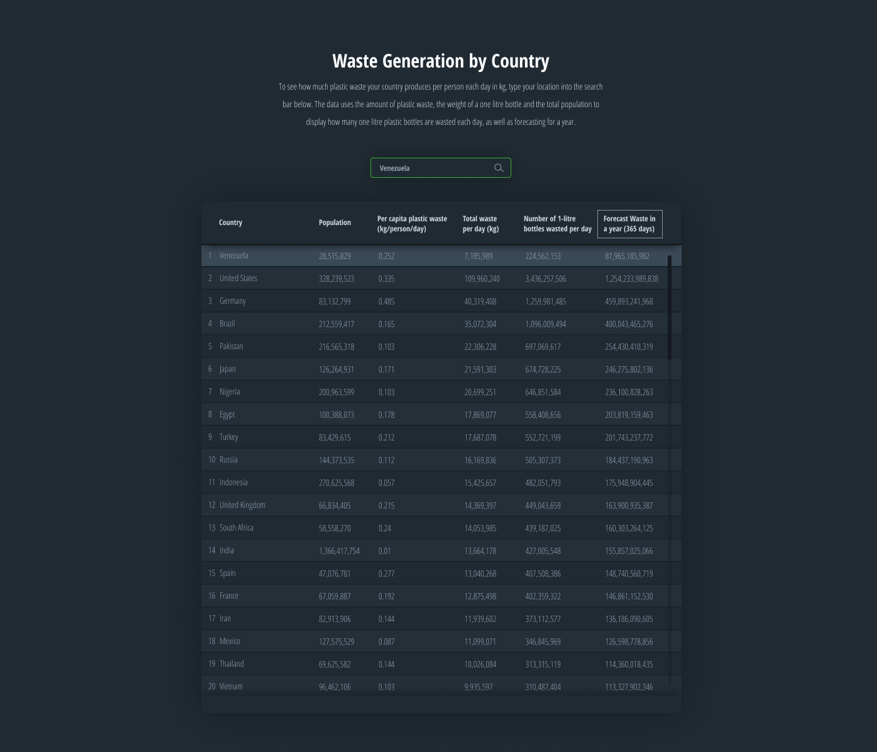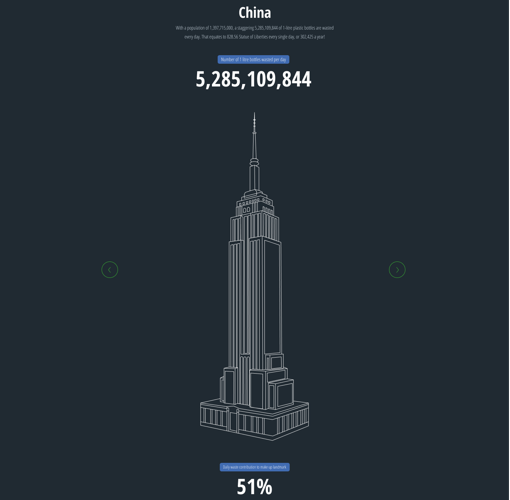As the United Nation’s COP26 gets fully underway in Glasgow, U.S. searches for ‘COP26 Glasgow’ have had a 140% increase in the past 30 days. As plastic waste makes a big contribution to the climate crisis, new research visualizes the volume of U.S waste production through iconic landmarks.
Compare the Market took the weight of 10 popular landmarks; Eiffel Tower2, Statue of Liberty3, Christ the Redeemer4, Great Pyramid of Giza5, Empire State Building6, Willis Tower7, Sydney Opera House8, Burj Khalifa9, Golden Gate Bridge10 and Tower of Pisa11 to highlight the number of times each one could be replicated based on plastic waste in each location.
China is the worst offender with a plastic waste generation equivalent to 5.28bn bottles per day and 1.92tn per year, equalling 828.56 Statues of Liberty every single day, closely followed by the U.S that could re-create the Statue of Liberty 538.71 times based on one days’ waste. Forecasting for a year, the U.S could re-create the Empire State Building 121.2 times, as well as the Golden Gate Bridge 49.9 times. Canada ranks 48th on the list with almost 110 million daily plastic bottles wasted daily!
Following the research, the top 10 biggest plastic bottle waste generators are:

Germany comes in at third place, and based on the country’s wastage, could re-create 4.4 Eiffel Towers in a single day, or 49.9 Golden Gate Bridges. Russia scrapes tenth, with an equivalent of 505.30m 1-liter bottles wasted each year, equating to 15.57 Christ the Redeemers and 1.12 Tower of Pisa’s in a day.
Compare the Market also compiled a top 10 list based on the overall plastic waste generation, to determine which locations waste the most plastic based on a single person’s wastage.
Despite having a smaller population than most, Kuwait generates more plastic waste per person (0.69kg) than any other location, closely followed by Antigua and Barbuda (0.66kg) and Saint Kitts and Nevis (0.65kg).
There are a number of locations that have a surprisingly low level of waste, as can be seen with India; the 1.36bn population wastes the least of all locations included (0.01kg). Several African countries such as Mozambique and Tanzania, also keep plastic waste generation low.
Brett Mifsud, General Manager of Household at Compare the Market, said:“Recycling plastic, as well as other materials, is incredibly important. The more plastic recycled and reused each day, the less raw materials will be relied on, which in turn will keep greenhouses gases low and work to reduce our carbon footprint.
As our research highlights, there is more that countries can be doing to limit plastic generation and protect the environment.”
To find out more about the study, and to see where your country ranks, visit: https://www.comparethemarket.com.au/energy/a-skyline-of-waste/


